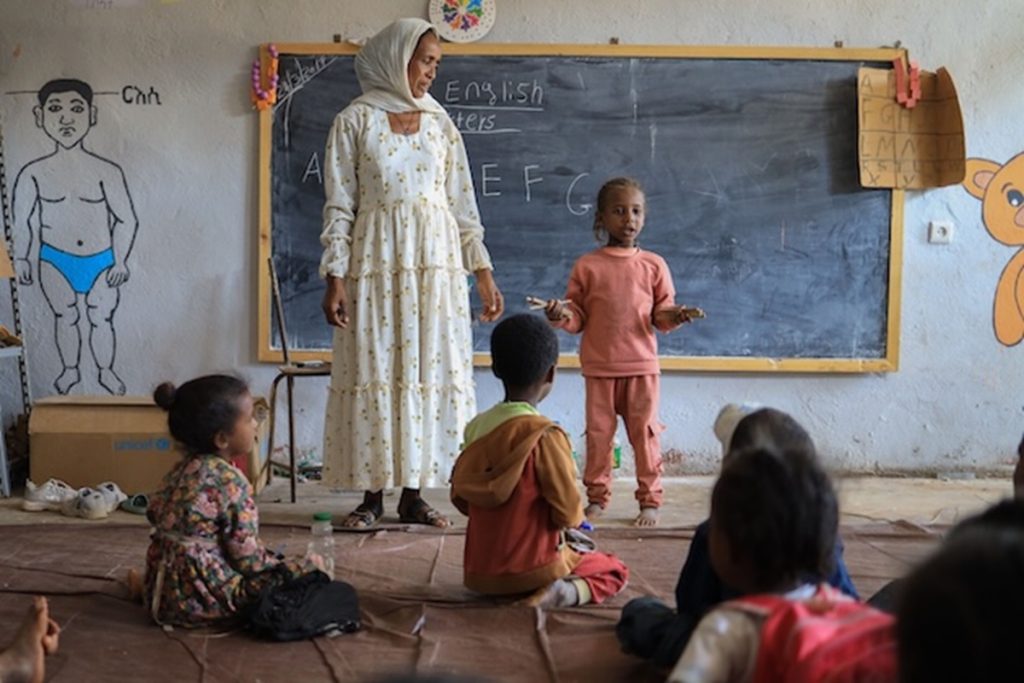As a joint high-level mission in Ethiopia, Nicolai Wammen, Danish Minister of Finance and Education Cannot Wait (ECW) Global Champion, alongside ECW Executive Director Yasmine Sherif, issued a powerful appeal for bold donor action. They emphasised the need for innovative financing to ensure quality education reaches millions of children caught in crises within Ethiopia and beyond.
Currently, Ethiopia faces a staggering crisis: approximately 9 million children are out of school due to ongoing violence, climate-driven disasters, and mass displacement—a figure that has tripled since 2022. Nearly 18% of the nation’s schools have been damaged or destroyed. Compounding these challenges, Ethiopia now hosts Africa’s third-largest refugee population, with over 200,000 new arrivals from Sudan and Somalia in 2023-2024 alone, further straining already limited resources.
The ECW delegation travelled to the Tigray region, still grappling with the aftermath of a devastating three-year conflict that disrupted education entirely. Visiting schools supported by ECW and its strategic partners, the team witnessed the transformative impact of their programs, which are implemented in collaboration with organisations like UNICEF, Save the Children, the Norwegian Refugee Council, and Imagine1Day.
In one remarkable example, a single school saw enrollment rise by 20% last year, thanks to ECW’s comprehensive interventions. These programs include infrastructure rehabilitation, teacher training, psychosocial support, and inclusive education initiatives.

During the mission, Sherif announced a new US$5 million First Emergency Response (FER) grant, increasing ECW’s total investment in Ethiopia to over US$93 million since 2017. The new FER grant, managed by UNICEF (US$4 million) and Imagine1Day (US$1 million), aims to address urgent needs in the Oromia and Afar regions, which have been hit hard by renewed conflicts, intercommunal violence, and displacement.
This emergency funding complements ECW’s US$24 million Multi-Year Resilience Programme announced last month, which focuses on the Amhara, Somali, and Tigray regions. Collectively, ECW’s efforts have reached over 550,000 children and adolescents in Ethiopia, offering a comprehensive suite of supports, from school rehabilitation and feeding programs to gender-transformative and early childhood education initiatives.
ECW prioritises the most vulnerable—girls, children from refugee and displaced communities, and those with disabilities—while aligning its efforts with Ethiopia’s Humanitarian Response Plan (HRP) and the Ethiopia Education Sector Development Programme VI. Yet, a critical funding gap remains: an additional US$64 million is urgently needed to address acute education needs outlined in the 2024 HRP.
The call to action is clear: more resources are essential to secure a brighter future for Ethiopia’s children.


